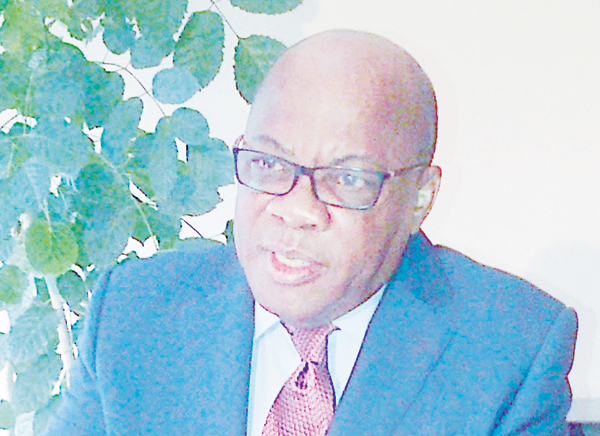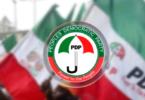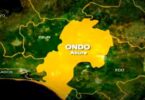As the National Democratic Coalition (NADECO) marks 30 years of its formation, one of the arrowheads of the struggle the end to military rule in Nigeria, Chief Olisa Agbakoba (SAN), on Sunday admonished President Bola Tinubu to have his eye on history.
This is as the legal luminary admitted that it was an error on the part of the pro-democracy and human rights leaders that championed the restoration of civil rule not to participate in post-military era democracy on the ground that their assignment had been concluded after guiding the country to a regime change in 1999.
Agbakoba, who was responding to questions by the Nigerian Tribune on the formation of NADECO three decades ago against the backdrop of perennial socioeconomic hardship in the country, said President Tinubu has the herculean task to bringing about a paradigm change, as a member of NADECO during the struggle to free the country from military rule.
“President Tinubu, as a member of our movement, has a unique opportunity to bring about transformational change. I believe everyone is watching as the president comes up to his 365 days in office,” Agbakoba emphasised.
The nucleus of NADECO comprised the apex pan-Yoruba umbrella organisation, Afenifere, Committee for Unity and Understanding (CUU), Eastern Mandate Union (EMU), Campaign for Democracy (CD) and the United Action for Democracy (UAD) while the fiery lawyer, the late Chief Gani Fawehinmi, also led the a coterie of opposition groups against the military government..
Among the key members of the CUU were the late Admiral Ndubuisi Kanu, the late governor of Imo State, Chief Sam Mbakwe, Mr Ayo Opadokun, Chief Edward Kobani, late Chief Lulu Briggs, Commodore Ebitu Ukiwe (retd), Alhaji Abdulazeez Ude, Ambassador Tanko Yusuf and General Theophilus Danjuma.
Noting that Tinubu was the first president to emerge from the pro-democracy and human rights community in Nigeria, Agbakoba reminded Tinubu that there are huge expectations from him based on his trajectory during the struggle to enthrone civil rule in 1999.
However, the former president of the Nigerian Bar Association (NBA) said the ideals espoused by NADECO and others that led the struggle that culminated into the return to civil rule was not something that could be achieved in one fell swoop.
“The democratic ideals of the pro democracy and human rights movement, in relation to the current sociopolitical status of Nigeria, is still work in progress. President Tinubu is the first president to come from our constituency.
“Much is expected and we hope the president has an eye on history,” Agbakoba stated.
He added: “The movement made a strategic error in not participating in post military era democracy on the assumption that our role was concluded with the return to democracy in 1999.
“This was, in my view, a huge error. So we are forced to the sidelines as advocacy activists and it is not always easy to create sweeping fundamental and transformative change unless you are actually in power. This is the deficit but we cannot despair. So, in spite of all the obstacles, we see our movement engaging the process, difficult as it is.
“President Tinubu as a member of our movement has a unique opportunity to bring about transformational change. I believe everyone is watching as the president comes up to his 365 days in office.”
In his contribution, Professor Anthony Kila highlighted the significance and impact of the NADECO, especially the enthronement of a free, fair and transparent election culture in thee country.
“Analysing things 30 years later, it is easy to say that NADECO’s desire for a civilian administration elected via elections has been fulfilled, which is not at all little.
“One must also add that with democracy clocking 25 years of uninterrupted reign, NADECO can be considered to have achieved something equal to, if not bigger than, what the founding fathers achieved by getting the country independence in 1960.
“When we are prompted to compare the type and standard of democracy we have in the country today, 30 years later, with the kind and standard of democracy NADECO envisioned and fought for 30 years ago, the answer becomes less easy.
“To be clear, the kind of democracy NADECO desired and fought for was a democratic system in federal Nigeria, where elections are devoid of rigging, politicians are responsible to voters, government policies are people-centred and a country where citizens are free and prosperous.
“To truly honour NADECO’s spirit and vision, it’s crucial for those who share their beliefs to recognise that the cost of democracy is eternal vigilance. We must unite, rekindle the flame, and remain steadfast in our commitment to keeping the torch of democracy burning bright.
“We also need to realise that nation-building and democracy are continuous efforts that do not end with partisan politics and politicians; rather, political parties and politicians need to be monitored and kept on their toes by those who care about democratic institutions.
“Patriotic democrats need to continue requesting a true people’s constitution, a federal Nigeria, and the accountability and integrity of political officeholders.”
Also speaking, the former Minority Leader in the House of Representatives between 1999 and 2003, Honourable Wunmi Bewaji, said that NADECO was formed not only the basis of the sanctity of the will of the people expressed by thee poll, as well as restructuring and devolution of powered to allow resource control and state police.
He noted that for the country to get out of the prevailing economic mess, we need to restructure, which he explained has nothing to disintegration of Nigeria, just as he described as unwieldy and not viable.
“If we don’t restructure, it will be difficult for the country to survive, “ he cautioned.
Revisiting the birth of NADECO and the fallout, another a legal practitioner cum activist, Mr Yomi Ogunmola said that part of the objectives could not be fully achieved because the struggle had no what he called consensus on what to do with the championed model, if attained.
He claimed: “There was neither a common purpose for the birthed democratic model nor a collective agenda on working the model to attain specific goals.
“NADECO never considered, at its outset, concepts such as: rule of law; separation of powers; credible electoral processes; effective institutions of state; rejection of kakistocracy; federalism; restructuring; eradication of corruption and abuse of power; people empowerment; economic growth and development models; social organisation; egalitarianism, etc., and their workings, as pillars for an enduring democratic model, for which they fought.
“The fundamental omission led to a wobbling democratic adventure, which only saw opportunists taking advantage of the system, for personal gains rather than the collective good.
“The failure of the political class, and, particularly, NADECO, since 1999, to entrench a government of the people by the people and for the people, as a credible alternative to military adventurism, has been its greatest failure.”
“We need to return to the trenches to fashion out a responsible, responsive and adaptable governance model that prides our peculiarities rather than working on foreign historical assumptions and principles, disconnected with our home grown realities.”
ALSO READ: Oyo monarch seeks govt intervention over non-payment of salary







